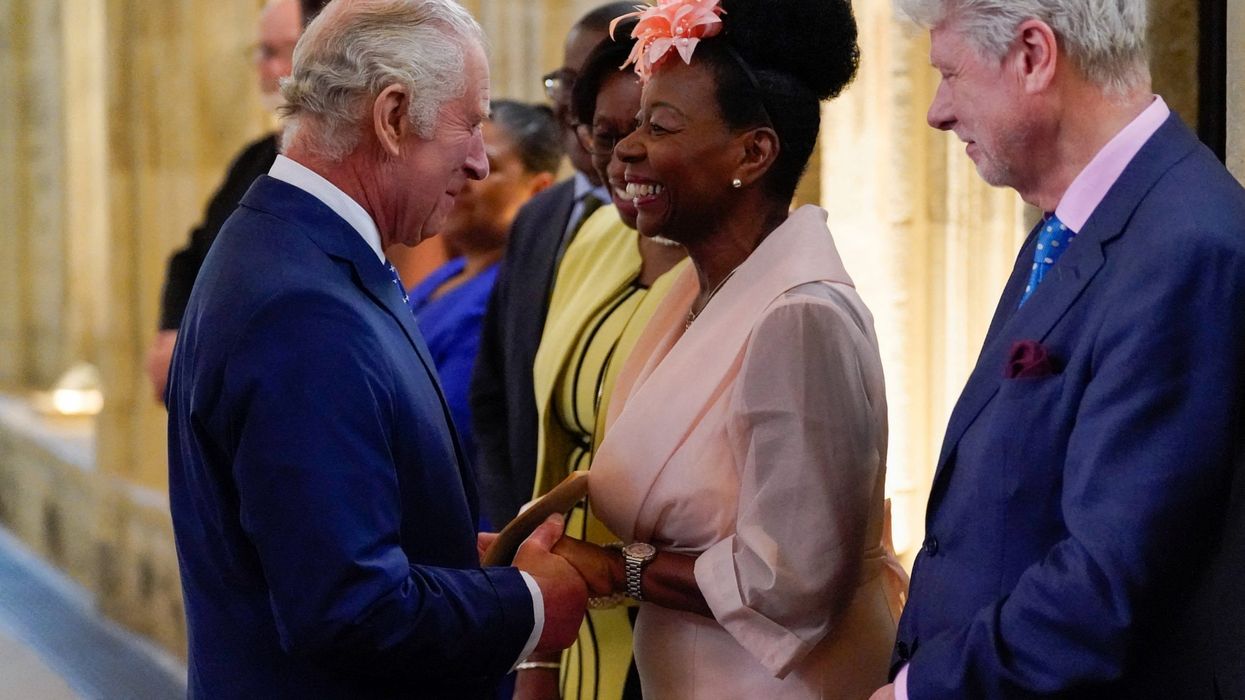Known as the "Windrush generation", thousands of people came to the UK at the invitation of the UK government between 1948 and the early 1970s to fill shortages of key workers following the second world war.
Prince William said Britain was a better place thanks to the "Windrush generation", as church services, processions and exhibitions led tributes to the contribution of the "Windrush generation" in London and across the country.
He added, "We are a better people today because the children and the grandchildren of those who came in 1948 have stayed and become part of who we are in 2023. And for that we are forever grateful."
Events began at the Tilbury Docks in Essex, east of London, where on June 22, 1948, the Empire Windrush ship arrived, bringing the first of hundreds of thousands of people who came to Britain between 1948 and 1971 to help rebuild the country after the war.
Those who came on the Windrush, a German-built ship which the British captured as a prize of war and renamed after an English river, spent their first nights in London sleeping deep underground in a shelter beneath Clapham South underground station.
"Welcome home," ran the headline in London's Evening Standard newspaper.
Those migrants found jobs in the NHS or on public transport systems, but many were victims of racism, with discrimination continuing to the present day in some parts of life.
Mostly from Jamaica or Trinidad and Tobago, they received indefinite leave to remain, but many who did not apply for passports later found themselves targeted by immigration laws intended to create a "hostile environment" for illegal immigrants.
Many lost jobs, homes, health care, pensions and benefits because they could not produce paperwork, while others were taken into custody or forced to return to the Caribbean.
Five years after the scandal sparked outrage, many of those affected are still waiting for the promised compensation.
In 2018, Britain apologised for its "appalling" handling of the Windrush generation.
Event organisers said the 75th anniversary was seen as a moment to reflect on that wrongdoing, as well as to celebrate the migrants' contribution to British society.
"We know they experienced hardships," William said. "But they also experienced joy; and life did indeed change for them and their families."
King Charles III said the anniversary is a chance for the UK to "recognise and celebrate the immeasurable contribution that they, their children and their grandchildren have made to this country.
"Once in Britain, they worked hard, offering their skills to rebuild a country during peacetime and seeking opportunities to forge a better future for themselves and their families," he said in the foreword of a book accompanying a display of portraits.
To mark the anniversary, the King will attend a service for young people at St George's Chapel on the royal family's Windsor estate.
The monarch has also commissioned 10 portraits of 10 members of the Windrush generation as part of the celebrations. These will go on display at Buckingham Palace later this year.
"It is, I believe, crucially important that we should truly see and hear these pioneers who stepped off the Empire Windrush at Tilbury in June 1948," the King said.
Among Thursday's events will be a procession in Brixton, the south London area where many of the migrants made their home, and services at Southwark Cathedral in London and at Windsor Castle, which the king will attend.
(Agencies)




